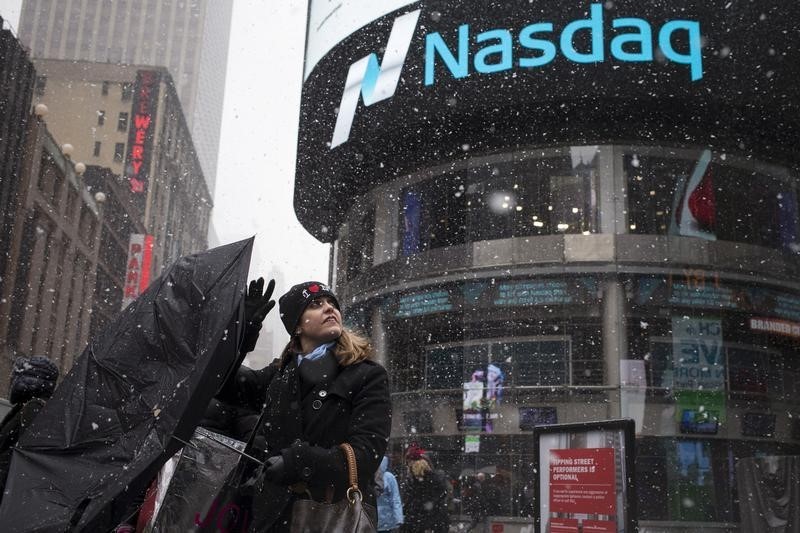By John McCrank
NEW YORK (Reuters) - Regulators should overhaul decade-old rules that govern the U.S. stock market before allowing upstart venue IEX Group to become a fully-fledged exchange, Bob Greifeld, head of Nasdaq Inc (O:NDAQ), said on Thursday.
IEX, a market operator featured in Michael Lewis's book, "Flash Boys: A Wall Street Revolt," is currently a private trading venue. It applied in September with the U.S. Securities and Exchange Commission to become a public exchange.
The move prompted Nasdaq, along with other exchanges and automated trading firms, to complain to the SEC about IEX's operating model. They said it runs afoul of a sweeping set of rules governing exchanges the SEC adopted in 2005 called Regulation National Market System (Reg NMS).
The SEC has also received hundreds of letters in support of IEX, which features a "speed bump" that slows down orders by 350 millionths-of-a-second. IEX says the pause lets it update fast-changing prices before the speediest traders can act on stale data and effectively queue-jump.
Opponents say it detracts from market quality.
Nasdaq told the SEC in 2012 it planned to add a speed bump to one of its exchanges, but the regulator said the feature would not comply with Reg NMS, Greifeld said.
Before making a decision on IEX, the SEC should complete a comprehensive review of Reg NMS and ensure the rules can be applied evenly, he said.
"If you want to have this kind of innovation happen in the marketplace - and we are not opposed to it – we are just saying first change the set of rules for everybody and not on a one-off basis," he said in an interview.
Nasdaq's approach differed from IEX's in that it wanted to slow only a subset of traders, but the goal was the same: protecting investors from opportunistic traders, said IEX's Chief Strategy Officer, Ronan Ryan.
"As it relates to the NMS, holding up IEX until long-running disputes about market structure are settled is a good way to stifle competition, not a great way to achieve meaningful reform," he said.
Reg NMS states that stock trades should occur on whatever market has the best price at a given time. It has been credited with spurring greater automation, competition and lower costs. It has also been criticized for putting too much emphasis on the speed of trading and intensifying market complexity.
IEX launched in October 2013 calling itself a more simple marketplace. It is now the third-largest alternative trading system.

